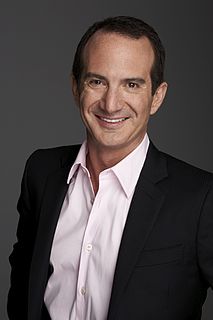A Quote by Suze Orman
After you marry, every asset either of you acquires is jointly held. That's why you both need to be in sync on your long-term financial goals, from paying off the mortgage to putting away for retirement. Ideally, you should talk about all this before you wed. If you don't, you can end up deeply frustrated and financially spent.
Related Quotes
No one anticipates divorce when they're exchanging vows, and it can be devastating emotionally and financially. To ease the financial side of the blow, you need to maintain your financial identity in your relationship. That means having your own credit history - you need your own credit card - and your own savings and retirement accounts.
Keep yourself motivated. You've got to be motivated, you've got to wake up every day and understand what that day is about; you've got to have personal goals - short term goals, intermediate goals, and long term goals. Be flexible in getting to those goals, but if you do not have goals, you will not achieve them.
My motivation is paying the mortgage. No joke. Honestly. I still suffer with nerves and think, 'Why am I putting myself through this torture?' It's not actually the love of winning - it's that building of a partnership with a horse. Just riding horses every day keeps me going. And that threat of losing the mortgage.
The thing that I learned early on is you really need to set goals in your life, both short-term and long-term, just like you do in business. Having that long-term goal will enable you to have a plan on how to achieve it. We apply these skills in business, yet when it comes to ourselves, we rarely apply them.
Cash - in savings accounts, short-term CDs or money market deposits - is great for an emergency fund. But to fulfill a long-term investment goal like funding your retirement, consider buying stocks. The more distant your financial target, the longer inflation will gnaw at the purchasing power of your money.































